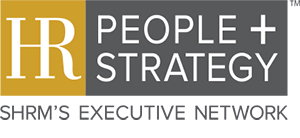Boards of Directors: HR’s Most Challenging Frontier
Co-authored by Mark Nadler and Anna Tavis
January 2017
Leading thinkers envision a dramatic expansion of HR’s influence. But for that to happen, HR visionaries must close the gap between their aspirations and the more traditional perspectives of the boards of directors who are the ultimate organizational gatekeepers.
The Brave New CEO Transition
Mark Nadler contributed the lead piece to the new HR People + Strategy “Perspectives” package on CEO Succession. Edited by Anna Tavis
January 2017
Nadler’s central hypothesis: The combination of a first-class CEO succession process and an appropriate governance structure should enable organizations to appoint a new CEO who is professionally prepared and structurally empowered to operate as a fully functioning CEO on Day One. The Board should have such confidence in the new CEO’s readiness to do the job that it feels no need to hang onto a security blanket in the form of the retiring CEO.
In addition to Mark’s contribution, there are several other perspectives on CEO Succession in the HRPS article from industry leaders Seymour Adler, Tom Manning, Kenneth W. Freeman, and David Reimer.
The HR Threat to Board Effectiveness
By Mark Nadler and Julie Chen
August 2015
“NACD Directorship Magazine”
“It’s difficult to imagine how any board can truly grasp, much less question, its organization’s strategic opportunities and potential risks without a deep understanding of the organization’s talent, culture, and leadership pipeline.”
THE HR OPPORTUNITY IN THE BOARDROOM: How to Become a Trusted Advisor to the Board
By Mark Nadler and David Nadler
April 2015
“HR People + Strategy”
In effect, what we’re witnessing in this age of activist investors is the parallel emergence of the activist board. And that development holds enormous consequences for HR leaders who successfully position themselves to seize the opportunity. That’s the good news for HR. The bad news… is that most CHROs still have a long way to go.
Boards Sidestep Director Evaluations at Own Risk
By Mark B. Nadler
May 19, 2014
“AGENDA Week”
Without question, formal director evaluation remains a touchy subject, particularly in boardrooms populated by current and retired CEOs and other luminaries who are used to being in charge. That could also help to explain why 360-degree feedback for directors is four times more common at small, private companies than at the $10 billion-plus public companies that attract all-star directors. We’ve spoken with directors who literally cannot remember the last time they had a performance review; to many, the whole idea feels awkward and unseemly.


